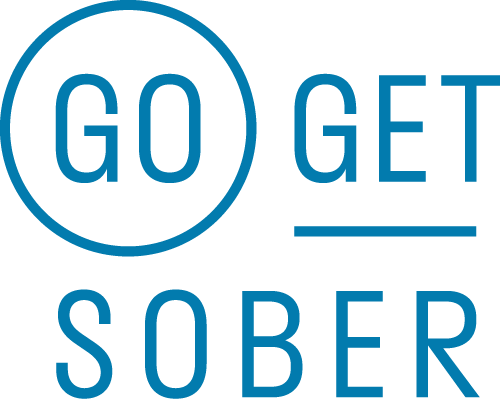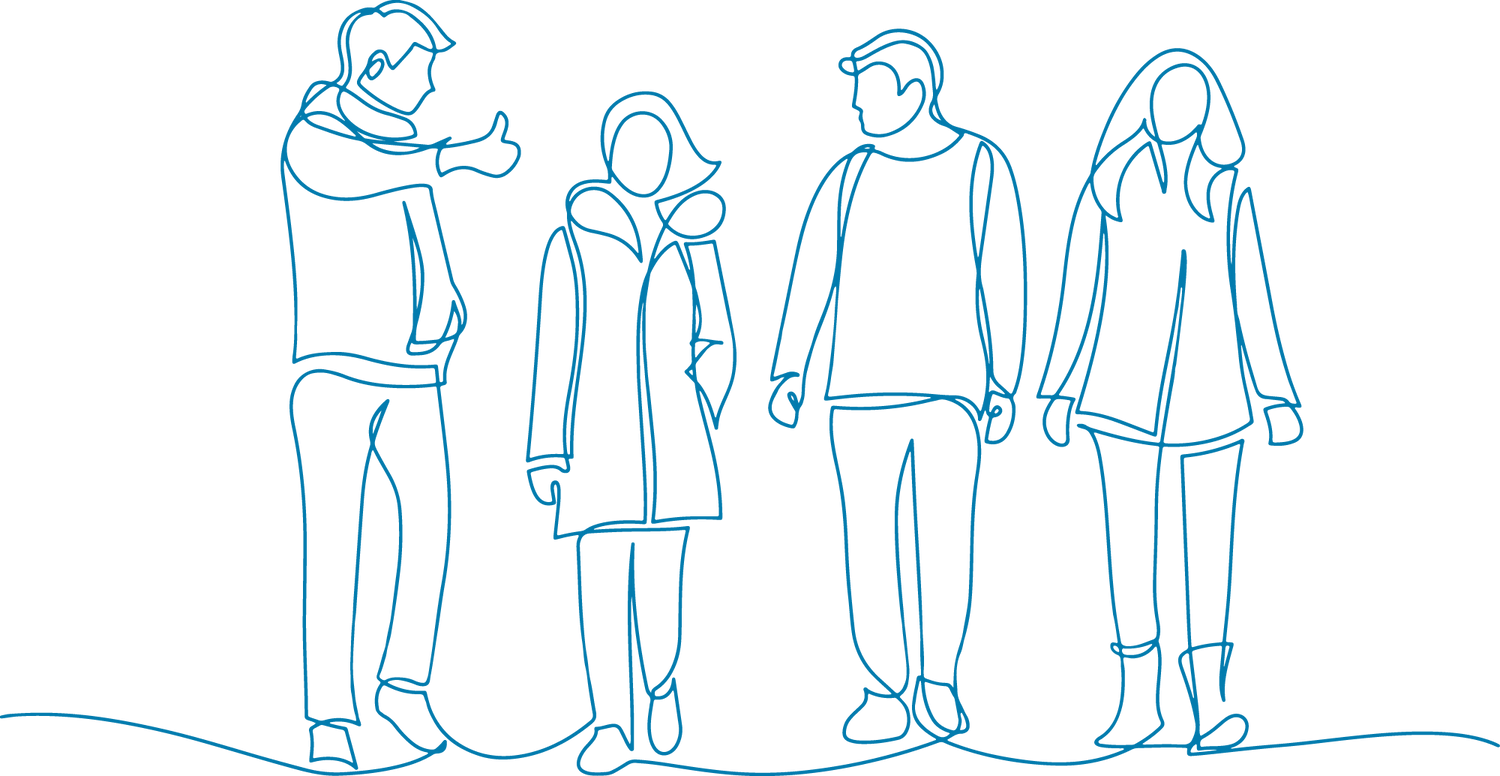Holiday Weekends and Mondays
Just the other day, I was thinking about the significance of Mondays.
I was thinking how, for decades, Mondays were hell. They were all about coping. Coping with a hangover, coping with work, coping with high levels of anxiety and stress, coping with intense panic attacks. All brought on by heavy drinking over the weekend. Coping with any commitments or appointments I had that day. Coping with conversations and people. Coping with guilt and shame.
Mondays were a day I dreaded, a day I had to get through, a day for recovery and come-down, a day for weaning myself off alcohol in a manageable way. They were also a day of acting. Pretending I was fine, pretending I was an energetic mother, pretending I was a capable professional. Pretending I was enjoying my work and functioning at my best. Pretending my mouth and breath didn't stink of stale alcohol.
I was just reflecting on the transformation from then to now. Mondays don’t really have any special significance for me now. They’re just another day but they’re another day that I can do what I want with. I can turn my Monday into anything. It can be a work day, it can be a productive day, it can be a celebration day, it can be an activity day, it can be a relaxing day. Mondays can be whatever I want them to be.
The most significant thing about Mondays now is that they aren’t significant. They’re just like any other day of the week. And, they’re not wasted. I'm making the most and the best of everything, not only on Mondays, but on every day of the week.
We’re approaching a holiday weekend in the UK, which usually means a longer weekend - we get either the Friday or Monday (or both) off work. This is what got me thinking about Monday mornings.
Nowadays, an extended weekend doesn’t have any impact on my week at all – I just enjoy some extra time to do my own thing. It feels like a gift. But, back when I was drinking, a holiday weekend was the excuse for me to drink more and binge for longer. So, of course there was a cost to that. The Monday come-down would be pushed back to Tuesday and it would be horrendous. My hangover and come-down would be even worse. I'd feel terrible. I would have double the guilt, shame and regret. Double the fear about my body and my health. I would have wasted even more time and hours. My hangover would last well into the week.
As I was remembering all of the misery holiday weekends used to bring me, my thoughts went to all the drinking pressure that we feel from society around us, particularly at holiday times. It’s a question that comes up time and time again: how do I get through holiday weekends sober?
Strategies for approaching a holiday weekend sober
If you want to make it easier to stay sober, here are eight strategies you can think about when you’re approaching a holiday or holiday weekend.
1 - Anticipate and Accept
It helps to anticipate and accept that, although you're no longer drinking, there will be stacks of people around you who will be. You could end up being surrounded by booze. Alcohol will continue to be promoted through advertising, tv, media and the people around you. You will see people out and about, enjoying themselves in the sunshine, having a good time with booze. It’s important to accept that rather than fight it. Fighting it takes energy and you need that energy to look after yourself. Accept that you will see, hear and smell people drinking and that you’re doing something different. In fact, you’re ahead of the game, doing something better, making a healthier lifestyle choice.
Learning to enjoy your sober life in the midst of what can seem like a booze-soaked culture, is the most healthy way forward.
And, yet, if we look closely and think more objectively, the truth is that it’s not as booze-soaked as we might perceive it to be. Because we’ve had an unhealthy relationship with alcohol, alcohol becomes our focus so we see it everywhere. We notice the people drinking around us. We notice the sights, sounds and smells of alcohol. We even associate the sound of laughter and chatter with alcohol. It’s where our attention naturally goes. But way more people are not drinking than drinking. Look at the people shopping, walking in parks with their children, going for coffee and cake, running or doing other sports, playing with their dogs. They’re not drinking. Most adverts we see are not about alcohol, it’s only a small percentage that are. What we pay attention to is what we get more of. If we’re thinking about alcohol, we’ll find it everywhere. If we’re thinking about healthy, sober activities, that’s what we’ll find instead.
I’m not saying this is easy to do, I’m saying that acceptance is easier than struggle. Accept that there will be people around you drinking. Accept that you might notice the drinking and the alcohol around you more than other people do. Accept that lots of other people are not drinking just like you. Accept that it could be work for you to get through this but that you can do it and it will get easier. Focus on all the people you notice not drinking and prepare by planning activities that don’t put you in the middle of drinking events.
Another important thing to accept and anticipate is whatever you do over a holiday weekend, whatever activities, conversations and social gatherings you get involved in, it’s going to be a different experience sober. You don’t have to pass judgement on whether it’s better or worse, it’s just different. You can get curious about how it will be different because this curiosity is a much healthier state to be in than an anxious or fearful one.
2 - Plan and Prepare
Planning and preparing for your holiday weekend in advance is going to set you up for success and give you a head start.
Planning ahead gives you structure and confidence. You’re less likely to get blown off course when you know what you’re doing and you have things to get done or look forward to.
If you can create a plan that fills your weekend with a combination of productive, fun and relaxing activities, with plenty of treats and rewards thrown in, you’ll feel much more confident about getting through it. You might even look forward to it. And, you’ll certainly come away from it with good memories.
3 - Go Easy on Yourself
By this, I mean say no when you have to.
It's very easy to try to run before you can walk. It's really important to know your limits, to know what situations are going to be too challenging or too tempting for you. It’s much better to say no and to steer clear of anything that’s going to be too much for you than it is to join in something on the spur of the moment, get taken by surprise, revert back to old automatic drinking patterns and end up waking up on Monday morning with regret, a hangover and missing memories. This takes some conscious thought in advance – hence the importance of planning. What will you say yes to? What will you say no to?
Remember it’s okay to say no. It’s okay to put your own needs first. Give yourself permission to say no to any invitations or social situations you think will be too challenging.
You can even prepare and rehearse your reasons and excuses in advance so they rattle off your tongue easily and confidently. Coming up with a reason why you don’t want to go to something is much harder to do in the heat of the moment when you might be feeling under pressure and vulnerable. Thinking it through in advance, coming up with your excuses and your reasons, and giving yourself permission to say no to events that you might find too challenging is a good thing to do.
Make things as easy on yourself as you can.
If you do want to challenge yourself and put yourself in situations that might be tough but you want to practise and develop your sober skills, that’s fine. In fact, that’s good! As long as you’re consciously thinking it through and planning it in advance. Pushing yourself out of your comfort zone builds your confidence. Only you will know where that balance is between pushing yourself out of your comfort zone into a social situation that you can manage and that's going to stretch you and build your confidence, and putting yourself into a situation that's going to be too tricky for you, where you might feel vulnerable, just too uncomfortable and you might be at risk of slipping up.
4 - Include Wellbeing Non-Negotiables
Make sure you plan things to look forward to, treats and rewards that will make you feel good.
Nurturing yourself, looking after yourself, giving yourself those things to look forward to is really, really important. Because it makes life easier. I like to call them Wellbeing Non-Negotiables because they’re things that, once they have a slot in my diary, are sacrosanct – nothing else can get in the way because my own wellbeing is the top priority. They are non-negotiable.
You will be your own best judge of what kind of thing can become a Wellbeing Non-Negotiable for you. It can be anything that's going to make you feel good, anything that's going to make you feel relaxed, anything that's going to help you sleep, anything that's going to make you wake up with a smile, anything that’s going to give you energy, anything that brings you joy or peace.
5 - Mix with the Right People
Crucial to your success is to make sure you’re surrounded by the right people. And by right people, I mean people who are going to be helpful to you, people who are going to make your life easier, people who are going to inspire you, people who stimulate you, people that make you laugh, people who get you. People you enjoy being around.
Let's say, for instance, you've got a group of friends who are going out drinking on the Friday night because that’s what you’ve always done together. You know that if you go out with them they're going to really put you under pressure to drink and that makes you feel vulnerable. Drunken shenanigans is the only thing you have in common. That’s not who I mean by the right people. That’s a situation you can say no to if you don’t feel ready for it.
Remember, don’t try to run before you can walk.
You’re the best judge of what's going to be okay for you and what kind of people you want to spend time with.
And if, like me when I first stopped drinking, you don’t have enough of the right kind of people around you, you can take one or two small steps towards finding them. Looking around for groups or activities where you’re likely to meet people with similar interests to you is a good first step.
6 - Plan for Challenges
You’re much less likely to be derailed if a challenging or triggering situation crops up when you’ve prepared for it. You can spend 10 minutes first thing in the morning thinking through the day ahead and pin-pointing any potential challenges. Once you’ve done that, you can plan how you’re going to overcome them.
If there is a social event coming up and you’ve decided to go, maybe you want to plan to take your own drink with you. Maybe you want to plan and rehearse what you’re going to say if anyone asks you what you want to drink. Maybe you want to plan and rehearse what you’re going to say if anyone puts you under pressure to drink. Maybe you want to plan a reason to leave early so you don’t have to stay too long and have an escape route at the ready.
This type of planning ahead gives you confidence and allows you to sail much more easily through challenging situations.
7 - Mentally Rehearse Success
If you do have any challenges coming up, as well as planning how you’re going to deal with them you can also mentally rehearse dealing with them successfully.
A mental rehearsal in this context is a run-through in your imagination of the upcoming event. But it’s a run through where you’re at your best and you’re staying successfully sober no matter what the challenges are.
When you’re using your imagination to rehearse future success, the more fully you associate into the imagined experience with all your senses, imagining what you’ll see, hear, feel, smell and taste, the more real it becomes. And the more real it becomes, the more it tricks your brain into thinking that it is in fact real. And when your brain thinks it is in fact real and it sees you sailing through effortlessly, it believes then that that's possible. And so it creates the reality of that happening.
When you've mentally rehearsed successfully sailing through any upcoming challenges and it all feels possible, it gives you that security, knowledge and confidence that you can do it. You begin to believe that you can do it. You start to feel confident. You set yourself up for success.
8 - Nurture a Positive Mindset
Of course. going into any activity or social situation sober is going to be different to how it used to be when you were drinking. You’re not going to have alcohol to turn to as a way to relax, gain confidence, have fun, become more uninhibited. You’re not going to have alcohol to help you get supremely confident, chatty and sociable and to be the life and soul and the party.
But, instead of going in anxious and fearful about this, you can treat it as a bit of an adventure or an experiment. You can get curious and open-minded about how it’s going to be different for you. There are lots of things you can get curious about:
- How long it will take you to relax and start having fun?
- How many other people are not drinking alcohol?
- What’s different about the experience sober?
- Who do you meet that you might have something in common with and you might want to see again?
- Noticing the things that you know are going to put a really big smile on your face the following morning.
- What elements of your personality do you notice coming through?
Another way to nurture a positive mindset is to focus on how you’re going to feel when you get home. How you’re going to feel the next morning. How you’re going to feel on the Monday morning. Imagine waking up on the Monday with that sense of satisfaction, achievement, contentment. That clear-headedness. That grin that keeps sweeping across your face at something you’ve remembered that makes you smile. That happiness at remembering everything. That sense of Eurek! - I've done it – I can do this – I’ve got this!
When you can focus in on what you’ll be gaining from staying sober, it’s much easier to stay positive and strong. If you ever start to feel that you’re missing out by not drinking just remind yourself of everything you were missing out on because you were drinking and everything you’re gaining from enjoying the holiday sober.
Your Monday or Tuesday morning after the holiday is going to be phenomenally better than it has ever been while you were drinking. Your Monday mornings are only going to get better and better the longer you live your life sober. A significant part of the joy of a holiday is what it leaves you with, the memories, the experiences, the people, the satisfaction and the after-glow. It’s not just about what happens during the holiday but what you take away with you when it’s over. By staying sober, you allow yourself to enjoy more, experience more, remember more and take it all with you forward into the future, into your Monday and beyond.


